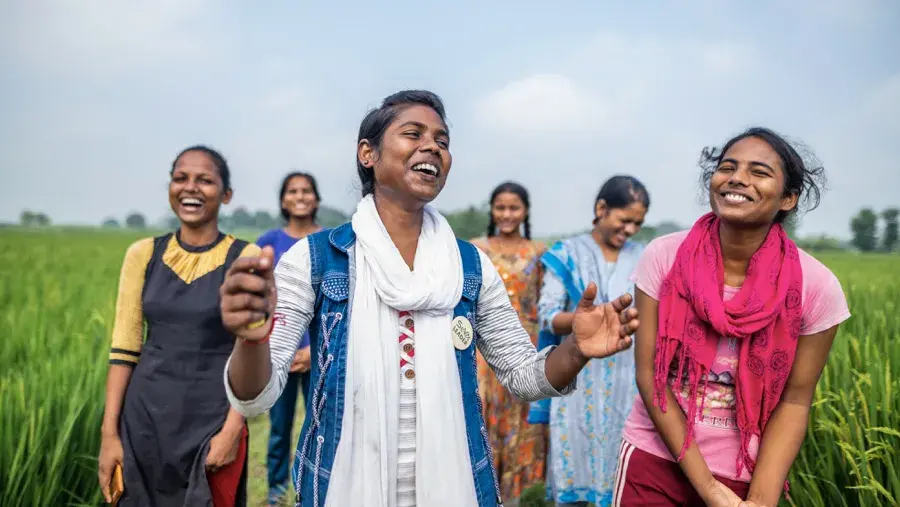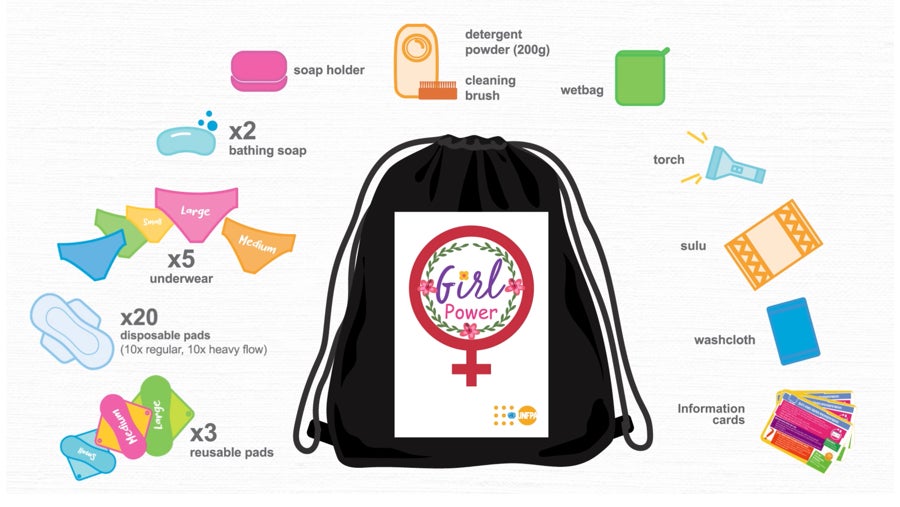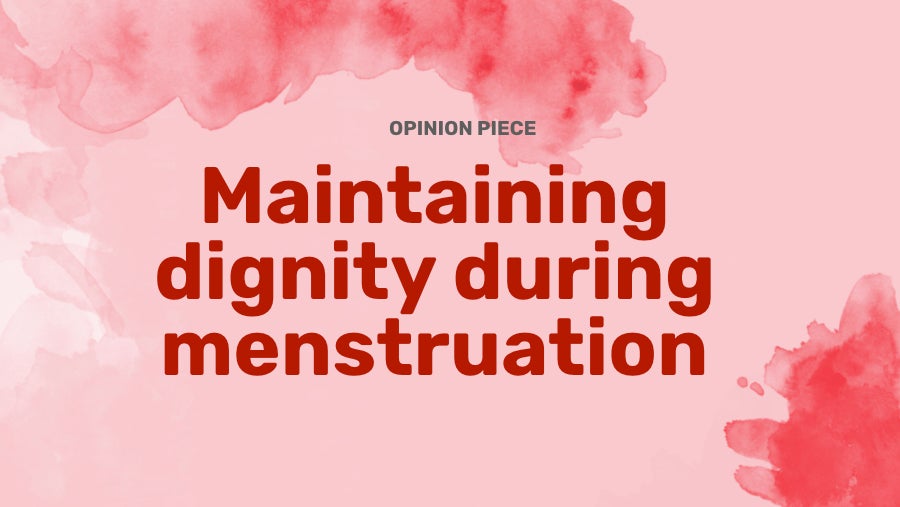Photo story: Moving forward on menstrual health
Moving forward on menstrual health
With its partners, UNFPA supports people who menstruate to uphold their dignity by ensuring access to menstrual supplies like disposable and reusable menstrual pads, menstrual cups, underwear, and supportive materials such as soap and buckets for washing.
By ensuring safe and effective means of managing menstruation, UNFPA is supporting women, girls and others who menstruate to exercise their fundamental right to their overall health and wellbeing. Today, on Menstrual Hygiene Day, we call on leaders to expand long term investments on this critical issue. Only by working together, can we empower everyone who menstruates to access their rights and reach their full potential.
This collection of stories from across Asia and the Pacific region celebrates the progress and the people delivering solutions.
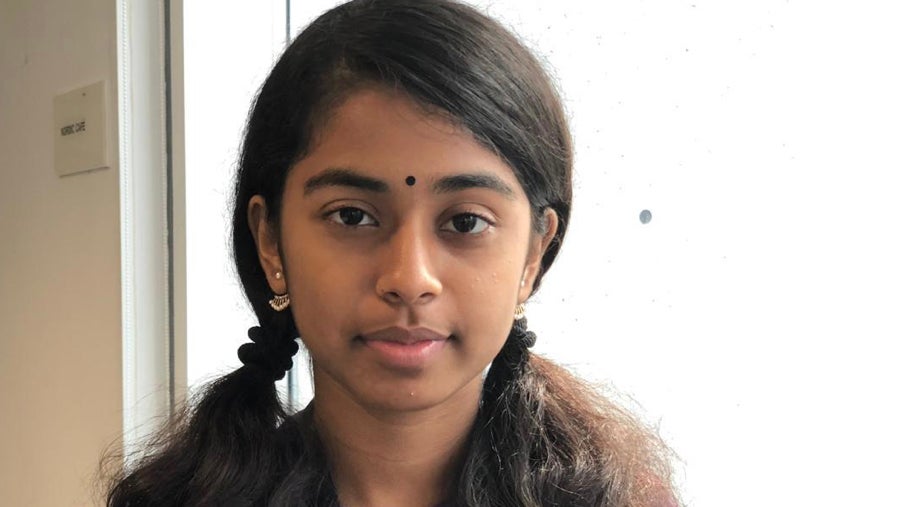
Bangladesh: “I had many questions about the changes that I was experiencing in my body and mind,” says Ayesha. “I was curious about how to manage my menstruation, and I didn’t like to carry sanitary napkins in my school bag. I even skipped school, because I felt uncomfortable discussing these issues with my teachers.” READ MORE
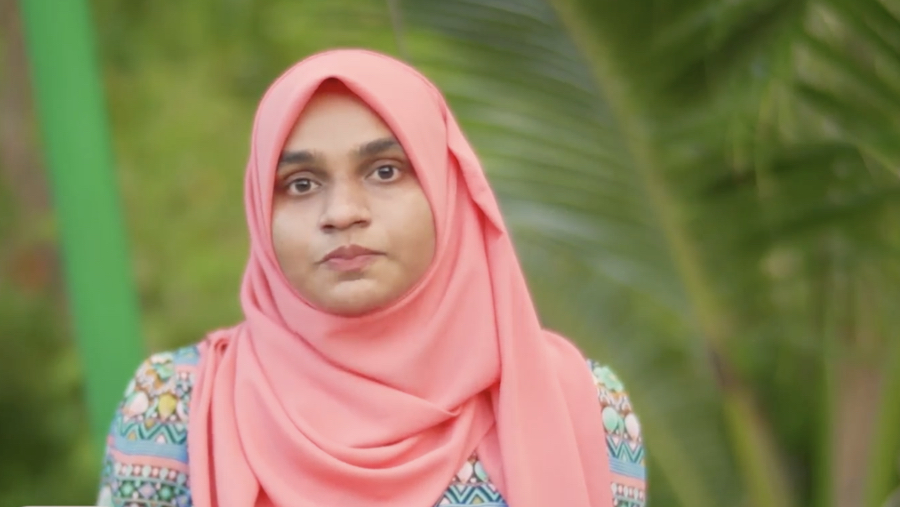
Maldives: Hamsha is the founder of Zero Waste Maldives and one of the leaders of Cupvert, an innovative collaboration that raises awareness about the benefits of reusable menstrual cups through discussions with women and girls. “The project aims to introduce sustainable menstrual health products,” Hamsha says. “At the same time we are providing information about reproductive health.” What began as a pilot in 2019 on Laamu atoll now has increasing numbers of people switching to cups and adopting climate-friendly menstrual hygiene practices, paving the way for scaling up across the country. READ MORE
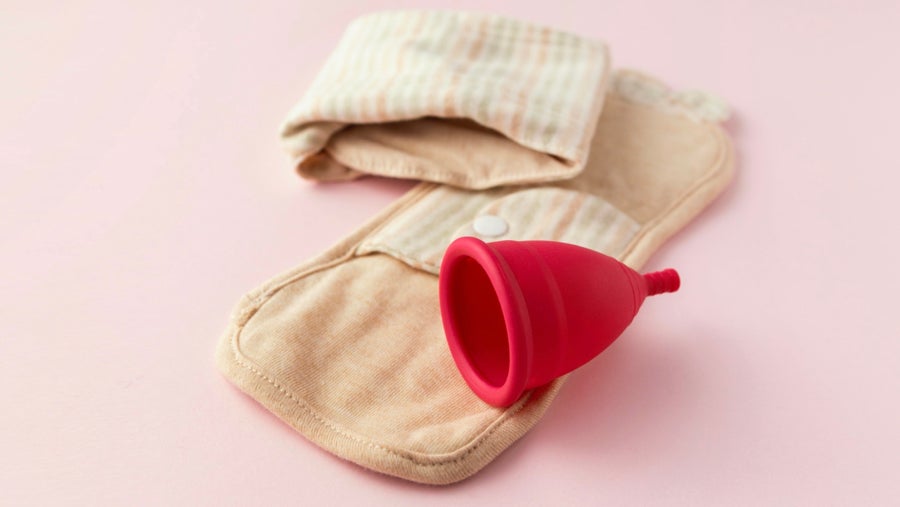
The menstrual cup is a type of reusable feminine hygiene product. It’s a small, flexible funnel-shaped cup made of rubber or silicone that you insert into your vagina to catch and collect period fluid. Cups can hold more blood than other methods, leading many women to use them as an eco-friendly alternative to pads and tampons. UNFPA is working with partners to deliver sustainable solutions like reusable pads and menstrual cups to empower women and girls with a waste-free solution.
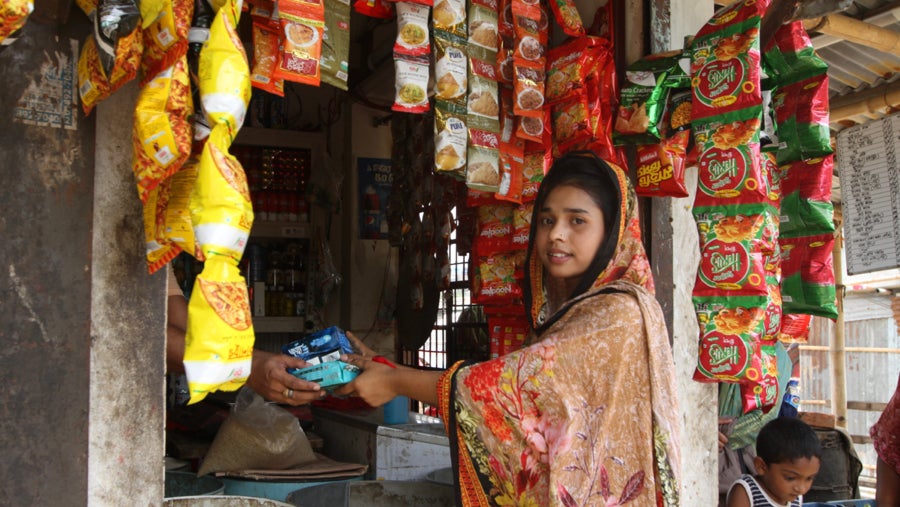
Bangladesh: UNFPA and World Food Programme are piloting a digital platform called "Building Blocks” to deliver food, menstrual supplies and information through community shops in informal settlements in Dhaka. Each month, women and adolescent girls from targeted groups can redeem packets of disposable menstrual pads and food items from a shop near their home. The innovation fuses a cash voucher model with a local grocery purchase to empower women and girls with choices when it comes to their menstrual health. READ MORE
"We are distributing pads, but we are promoting the idea of pads to give girls an opportunity and choices and let them know there is another way to manage.”
-Iliza Azyei, UNFPA Bangladesh
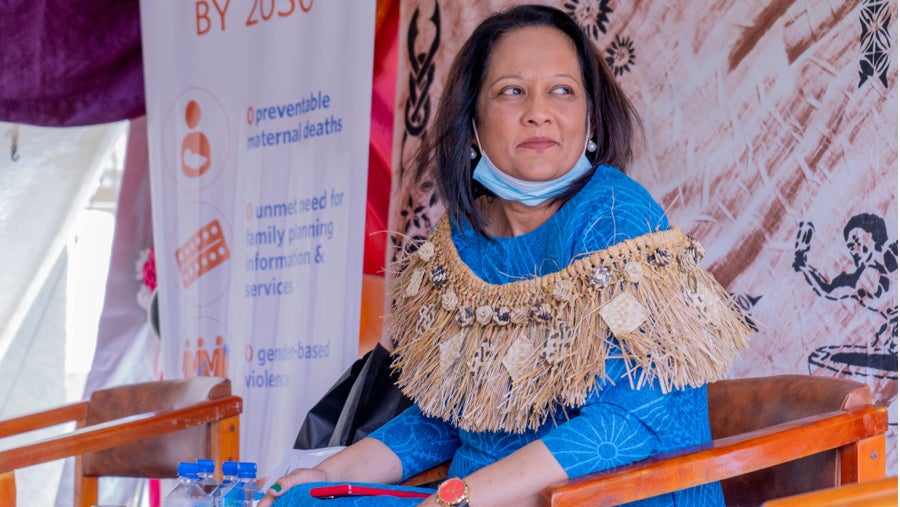
Fiji: “This initiative will go a long way in helping our girls to reach our full potential in their life,” says Rosy Akbar, Minister for Women, Children and Poverty Alleviation. “It is not just about distributing sanitary pads to our girl child, it is about addressing issues of education around menstrual health and hygiene education for both boys and girls to respect and be sensitive towards girls’ reproductive health and general well-being addressing issues like teenage pregnancies.” In 2021, the Fijian government announced an initiative to provide sanitary pads to school girls in years 7 to 13 under the Menstrual Hygiene Management Program. The government allocated $1.5 million so more than 50,000 girls are now provided with vouchers to buy their preferred sanitary pad from authorized vendors.
“Menstrual hygiene management addresses the broader health and hygiene needs of young girls and women including their well-being, gender equality in education, equity, empowerment and rights."
-Rosy Akbar, Minister for Women, Children and Poverty Alleviation. Fiji
UNFPA Pacific developed the Menstrual Hygiene Management Kit to help adolescent girls in the region manage their menstruation safely and with dignity even during and after emergencies. WATCH THE VIDEO
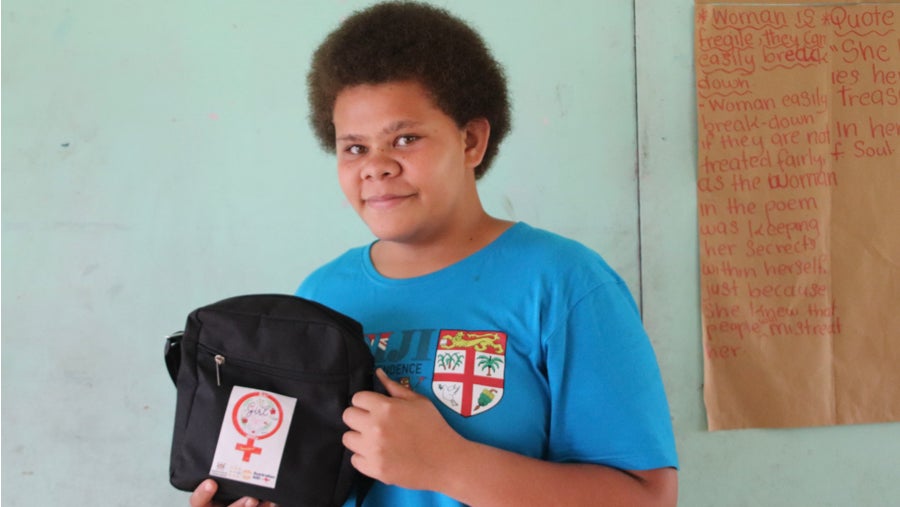
Alena Tawaki is 18. She received a Menstrual Hygiene Management Kit in 2021 as part of the response to Tropical Cyclone Yasa. "The menstruation card in the kit helps me to track the dates to know when my ‘friend’ (menstruation) will come," she said.
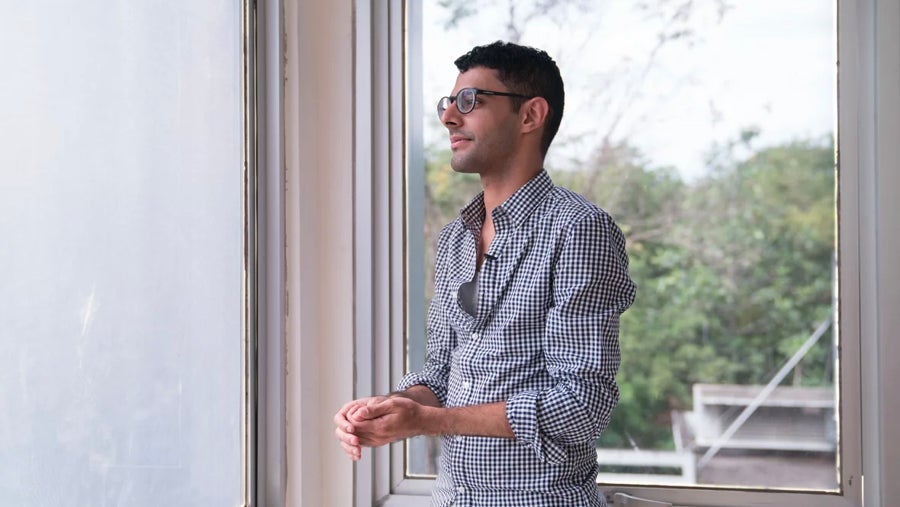
Indonesia: “Girls with intellectual disabilities, especially those with severe disabilities who require special needs school, often their parents do not even talk about menstruation at all,” says Sandeep Nanwani. He is the Programme Officer for Adolescent Sexual and Reproductive Health with UNFPA Indonesia. He worked on a program to train teachers to deliver a comprehensive sexuality education to students with intellectual disability, focusing on menstrual health and hygiene. So far the collaboration has trained 54 teachers in 11 provinces. READ MORE
“It was my first time learning how to teach these topics to people with intellectual disabilities so that students are fully supported as they go through puberty.”
-Tri, a teacher for students with intellectual disabilities in Jember, Indonesia

Cambodia: “Growing up there were few places where I could access comprehensive sexuality education, aside from sneaking off to read articles in magazines, which may or may not be factually correct and searching on the internet,” says Catherine Harry from A dose of Cath, a Youtube channel that presents accessible comprehensive sexuality education for Cambodian girls.
“I had little choice when I had my first period. My mother told me that I was an avid reader so I must know what to do and what was happening with my body. She left me to it by myself, but not every young woman has access to the information that I got. For many young women, when they have their first period, they are terrified. Some young girls told me that they thought they were going to die. We need comprehensive sexuality education, so young people know how to take care of their bodies and how to protect themselves.” LEARN MORE
"We need comprehensive sexuality education, so young people know how to take care of their bodies and how to protect themselves."
-Catherine Harry, A dose of Cath, Cambodia
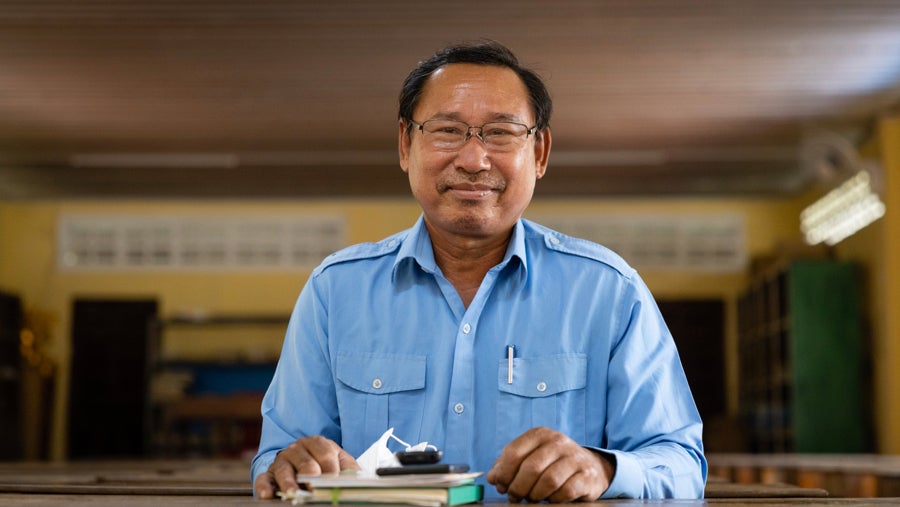
Cambodia: Ou Heng, is the Director of Samdech Krom Preah Ang Roneab High School in Takeo Province. His school has been working on menstrual health and hygiene by evaluating a school’s drinking water supply; the ratio of latrines to students separated by gender; and the presence of sanitary facilities, supplies and education. Success means girls in their district have access to upgraded facilities and adequate sanitary supplies, plus the confidence, knowledge, and skills to manage their menstruation safely.
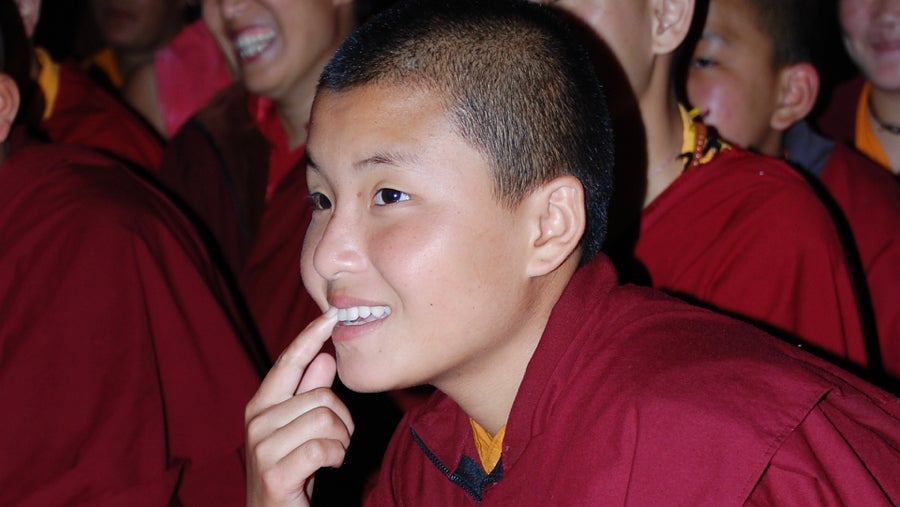
Bhutan: “Nuns have started discussing menstruation openly, and have also started making their own menstrual hygiene products,” says Nun Lhamo. “Nuns have played a crucial role by imparting critical health knowledge to rural women on issues like the importance of a pap smear, menstrual hygiene, contraceptives and family planning, and have gained the trust, respect and confidence of the community”.
UNFPA Bhutan engages with religious leaders as agents of change, initially working with the Bhutan Nuns Foundation. Over the past decade, 1,500 nuns across 26 nunneries have been sensitized on sexual and reproductive health and rights issues and gender-based violence prevention, and 80 nuns and 350 heads of monastic institutions including the Central Monastic Body (Zhung Dratshang) have been trained on life skills education. READ MORE
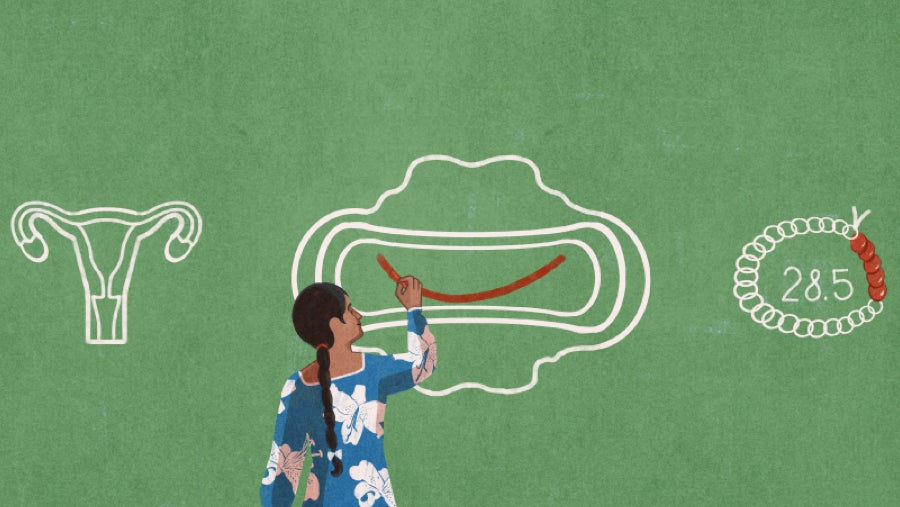
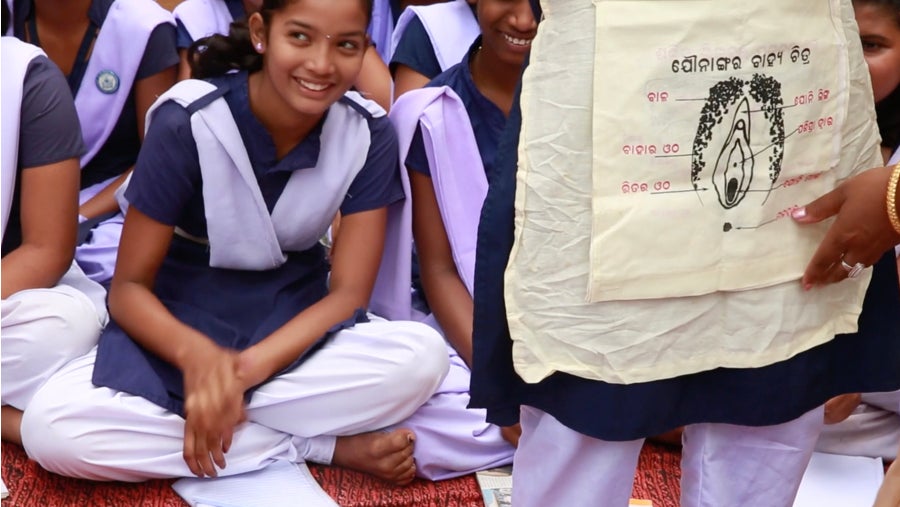
India: UNFPA India partnered with the state government of Odisha to break myths on menstruation through life skills education programmes in the tribal residential schools. In Nedipadar Girls High School, girls are taught skills which address myths around menstruation, leading to girls no longer having to cover themselves with a shawl while menstruating and choosing to stay in school during their period instead of going home and staying separately and away from male family members. “I didn’t need to leave school and go back to my village for my first period.” Jayanti Kanhara says. The government of Odisha is investing in strengthening the programme and has taken steps to ensure girls and boys in residential schools are safe and well informed. WATCH THE VIDEO
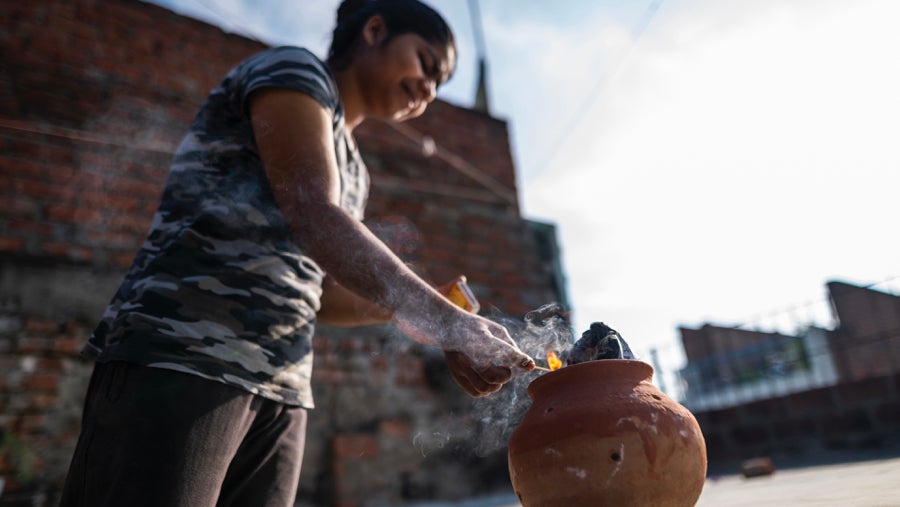
India: Pragya burns her pads using the matka technique used for safe disposal of sanitary napkins during menstruation at her house in Uttar Pradesh.
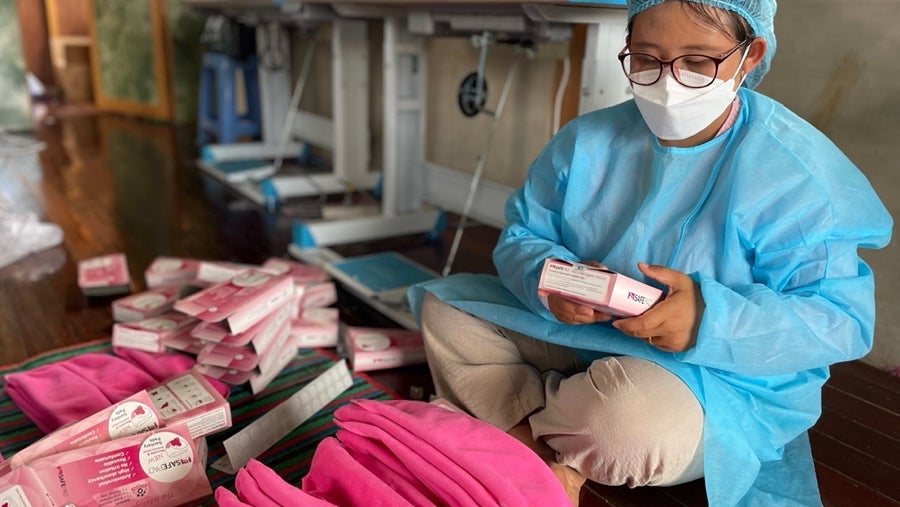
Myanmar: “Menstrual hygiene is essential for women and adolescent girls,” says Ei Ei, a displaced woman from one of the internally displaced person camps in Kayah State, located in the eastern part of Myanmar. “Being a displaced person staying at the camp, I have limited access to sanitary pads and hygiene products. Without having any income, I could not afford to buy these things unless someone gives them to me for free. Sometimes, I have to use pieces of cloth during my period. It is not hygienic and convenient, but I have no choice. Without proper menstrual hygiene support, we women are losing our dignity.” READ MORE
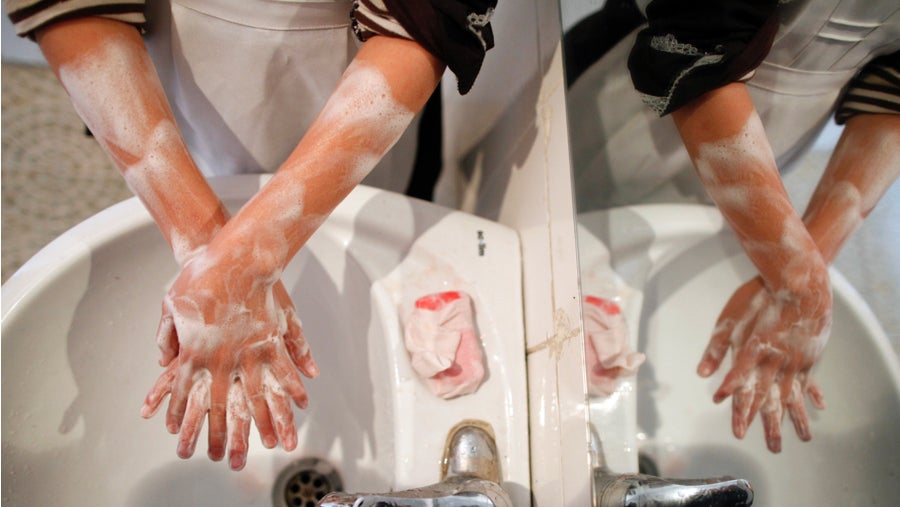
Before, during and after disasters, we need to expand our work with the water, sanitation and hygiene sector partners to ensure that people who menstruate have access to safe latrines and washing facilities with water and soap for changing, washing, and drying menstrual materials.
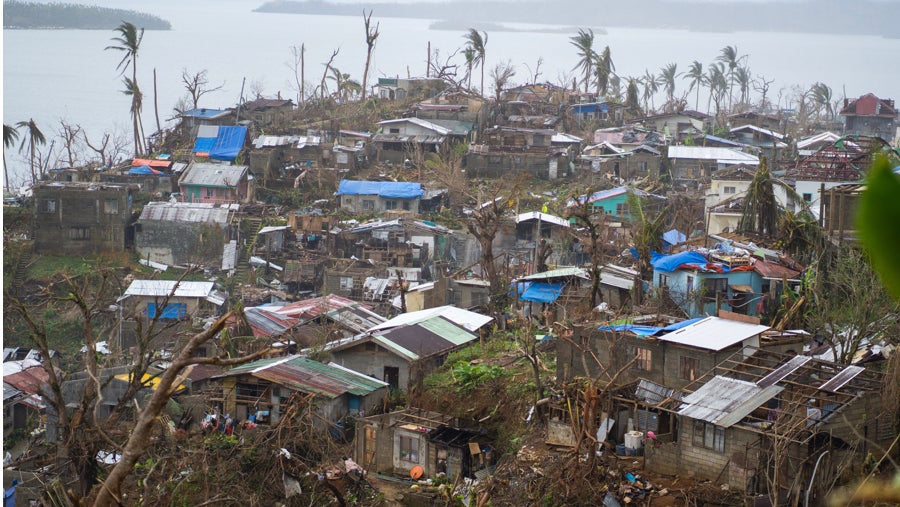
Philippines: After the onslaught of Typhoon Rai, residents of San Jose, Dinagat Islands province, had to rebuild their houses with the debris that littered the streets. UNFPA supports people who menstruate to uphold their dignity by ensuring access to menstrual supplies like disposable and reusable menstrual pads, menstrual cups, underwear, and supportive materials such as soap and buckets for washing.
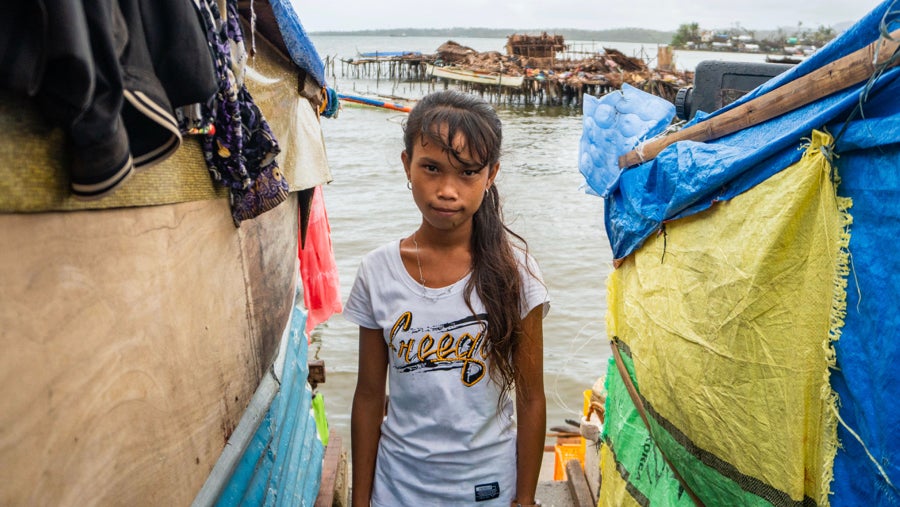
"It's hard to look by the sea, we can see the ruins of our home," says Didang from Surigao City. "We fled to the evacuation site in Canlanipa, before Typhoon Odette [local name for Typhoon Rai] swept off our village. We're safe but our houses, clothes, and our modules are gone."
Children from the Badjao indigenous communities living in Surigao City are among the most vulnerable people affected by Typhoon Rai. Badjao children’s lives are tied to the sea. They live, learn and play in houses and community schools on stilts.
After the typhoon, most of them found parts of their homes and learning modules floating in the water. Didang lives with 21 other people in a makeshift tent along the busy coastal road.
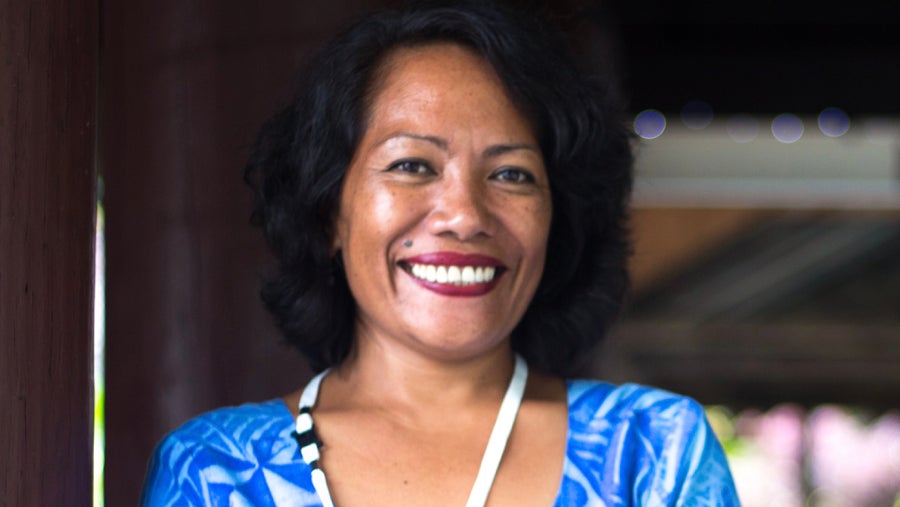
Samoa: “Sometimes we do not think about menstrual health and hygiene, but it makes a difference to women,” says Muliagatele Filomena Nelson. She is the Climate Change Adaptation Advisor at Pacific Regional Environment Programme and the former head of the Disaster Management Office for Samoa. “When women are affected by disaster the impact is traumatizing, and this little thing like sanitary pads can go a long way in helping to reduce that stress.”
Filomena says there are traditional coping mechanisms for menstruation in rural communities, but most Samoans are living a “modern Pacific lifestyle” so it is important to have dignity kits prepositioned.
”We need to make sure that menstrual hygiene is covered in the community preparedness programs to deliver an integrated plan to prepare the communities for any disaster situation.”
”We need to make sure that menstrual hygiene is covered in the community preparedness programs to deliver an integrated plan to prepare the communities for any disaster situation.”
-Muliagatele Filomena Nelson, Climate Change Adaptation Advisor at Pacific Regional Environment Programme
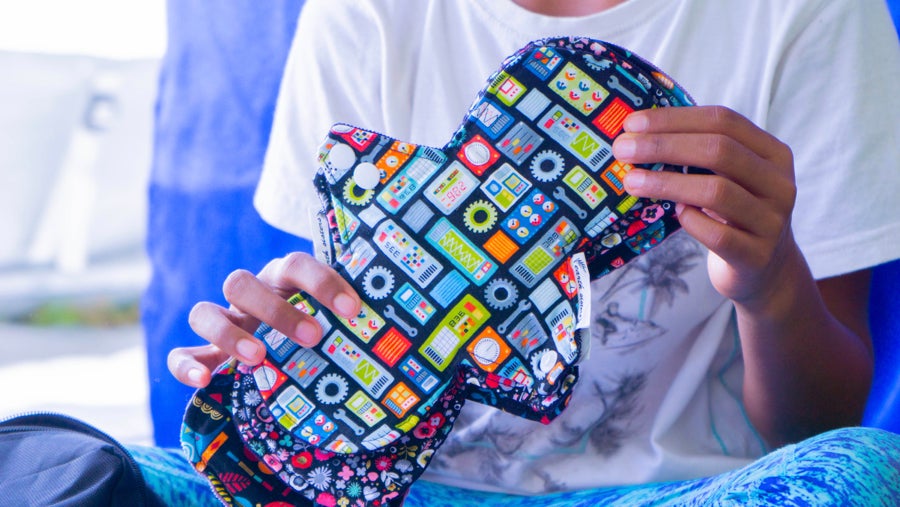
Pacific: Re-useable sanitary pads have been become central to UNFPA's dignity kits in the Pacific because the lack of adequate waste management systems make disposable pads problematic, especially after a disaster. The kits contain information on how to use and wash the pads, along with essential health information for women and girls.
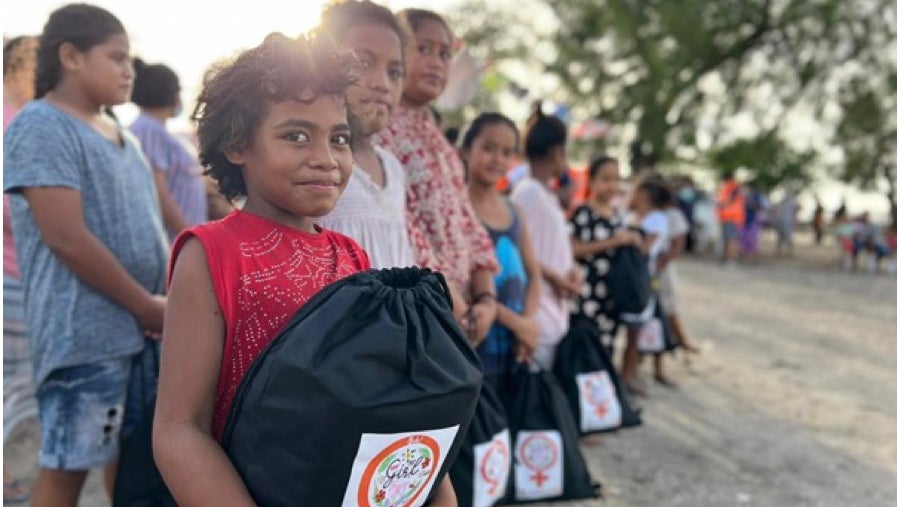
Tonga: When the volcanic eruption caused a tsunami and destroyed basic infrastructure in February 2022, UNFPA's pre-positioned menstrual hygiene kits and dignity kits were a vital lifeline for girls in Siesia-Nukunukumotu, one of the islands most badly impacted by the disaster.
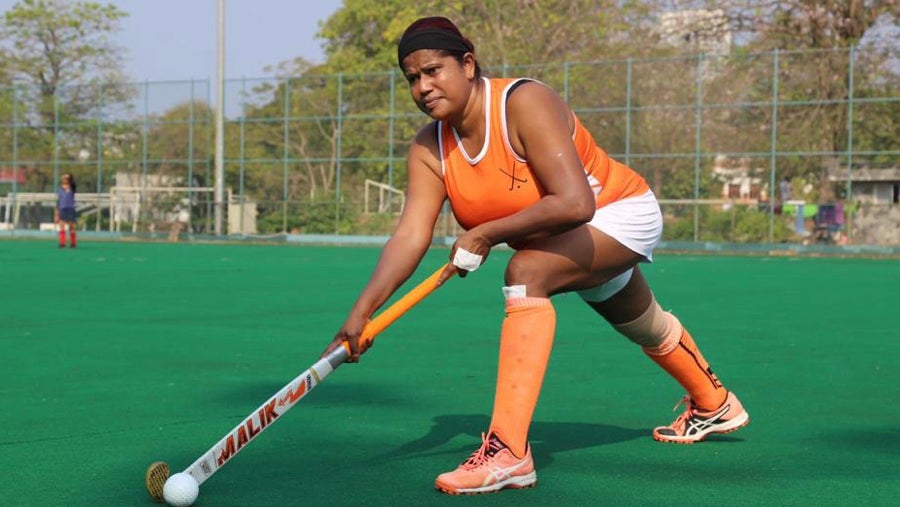
Sri Lanka: "It's a myth that periods affect women's performance" says Lakmali, a professional women’s hockey player from Sri Lanka. In a country where women often face stereotypical ideas and a range of prejudices in professional sports, menstruation remains one of them. “Periods shouldn't hold girls back from their dreams,” says Lakmali. LEARN MORE
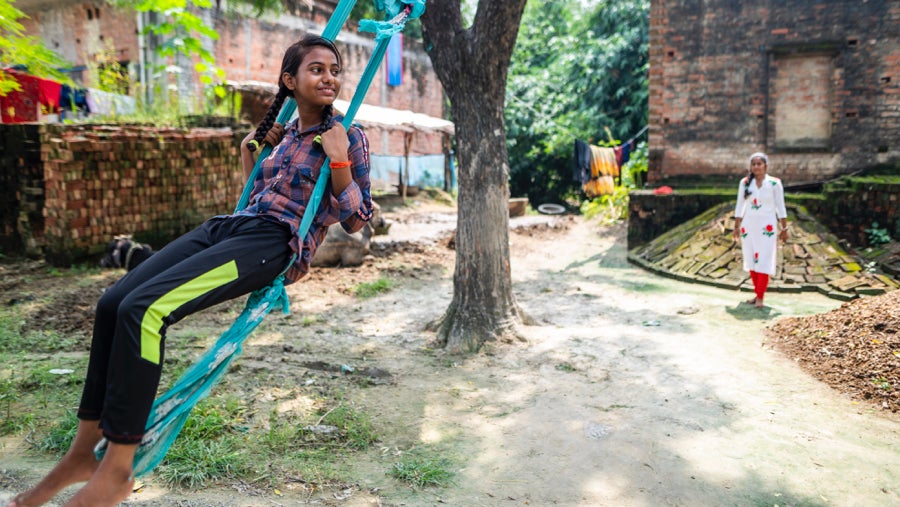
India: Radhika and her sister Bubbli play on a swing as part of breaking the taboo of not playing during menstruation at her home in Uttar Pradesh.
Learn more
Menstruation in a Global Context: Addressing Policy and Practice
Religion, Menstruation, and Refugee Realities: Insights from Rohingya Girls and Women
Period products: How menstruation is managed around the world
The Health Crisis That No One Wants To Talk About

